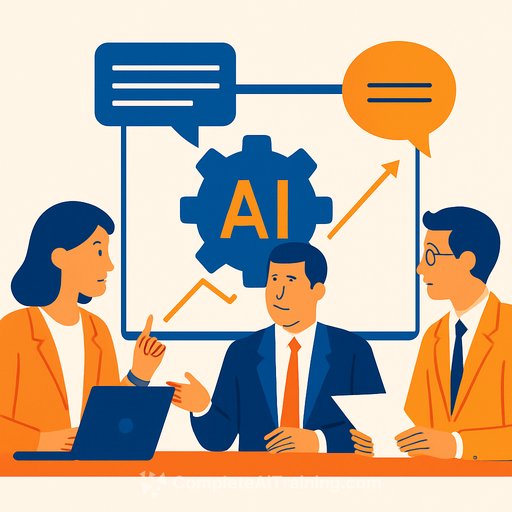Industry Urges Increased Research Funding and Public-Private Partnerships in National AI Strategy
Leading AI companies are calling on the federal government to expand investments across diverse technology areas critical to U.S. artificial intelligence development. They emphasize a collaborative approach involving industry, academia, and government to shape standards and accelerate innovation.
Private Sector Priorities for AI Research and Development
In formal comments submitted to the Office of Science and Technology Policy (OSTP) and the National Coordination Office for Networking and Information Technology Research and Development (NITRD), major players like Google, IBM, Anthropic, and Amazon outlined their expectations for the upcoming 2025 National AI R&D Strategic Plan.
A shared priority is sustained federal funding across a wide range of science and technology efforts related to AI systems. This includes foundational research, workforce development, and infrastructure expansion.
Google’s Vision: Education, Infrastructure, and Standards Leadership
Google advocates continued investment in algorithm and chip design, advanced manufacturing infrastructure, and training America’s scientific workforce on new AI technologies. It suggests launching a comprehensive initiative to educate science students and professionals, positioning AI as a vital scientific instrument.
Furthermore, Google stresses that the U.S. should lead in developing and promoting international AI standards. Collaboration between federal agencies and industry partners is key to ensuring consistent assessment methods, preventing hasty competition, and encouraging global adoption of U.S. technologies.
Amazon Stresses Multilayered Support and Academic Collaboration
Amazon aligns with Google’s approach, highlighting the importance of supporting every layer of the AI technology stack. The company points out its ongoing partnerships with academia in areas like quantum computing, robotics, cloud software, and semiconductors, all of which require continued federal backing.
Echoing the call for government-industry cooperation on standards, Amazon notes that such partnerships help develop practical, balanced standards that reflect diverse stakeholder interests while maintaining U.S. technological leadership.
IBM Calls for Diversified AI Model Research and Contextual Regulation
IBM urges federal support for research into smaller, task-specific AI models, contrasting these with larger generalized models. The focus is to understand cost-benefit tradeoffs and optimize AI use in federal missions.
IBM recommends prioritizing research beyond transformer-based architectures, citing limitations in explainability, energy efficiency, and hallucination risks. The company suggests exploring alternative models inspired by neuroscience, which may offer better solutions.
On regulation, IBM warns against mandatory third-party audits in early AI development stages, arguing they can cause regulatory hurdles. Instead, it advocates for risk mitigation through targeted testing in adversarial and worst-case scenarios, emphasizing that AI regulation should be domain-specific rather than one-size-fits-all.
Anthropic Highlights Mechanistic Interpretability and Democratized Research
Anthropic focuses on the importance of ongoing federal funding for mechanistic interpretability—the study of how AI models work through reverse engineering—and using AI as a scientific discovery tool.
The company stresses the need for democratizing AI research through partnerships involving government, private sector, and academia. It urges the National Science Foundation to maintain its collaboration with academic institutions and nonprofits to support transparency, accountability, and responsible governance.
The Broader Context: Reinstating Support for AI Research
These calls for strong government backing come after the withdrawal of multiple NSF-led grants during the previous administration, some aimed at expanding AI education and research access. Industry leaders are pushing for renewed and expanded federal support to maintain U.S. leadership in AI innovation.
For professionals interested in advancing their AI skills aligned with industry standards, exploring targeted courses can be valuable. Resources such as Complete AI Training’s latest AI courses offer practical learning paths tailored to emerging AI technologies and research trends.
Your membership also unlocks:






